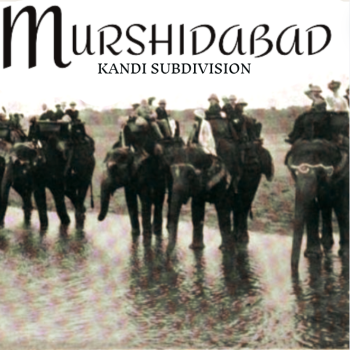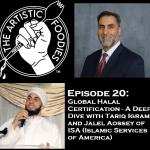 |
|
See you on the street
|
As tea party panic and the revival of Jim/Jane Crow in Arizona attest, Americans remain engaged in a battle over the meaning of the nation and who belongs to it. With the added dimension of Islamophobia, Muslim and non-Muslim folks alike seem to never tire or perhaps are never allowed to get beyond the question: what does it mean to be both American and Muslim? Upcoming events, Takin it to the Streets, a cultural festival, and two sporting competitions, the Islamic Games and the Riyaadah, are reflections of how the US Muslim community has answered (and in some cases moved beyond) that question. They also represent a very American awareness within this community that popular culture is a critical field in the battle over national belonging, and through it America’s Muslims must stake their claim.
Creative Interventions: Taking It To the Streets
In US popular culture there is one tradition in which those with power use all kinds of artistic expression, from Monet to Mos Def, to articulate a set of cultural standards (conveniently, these power brokers also produce the very commodities through which the average person can aspire to these values). Importantly, despite how these standards may seem to shift over time and space, at their core they continue to reassert a narrow definition of American, namely white, protestant, heterosexual and middle class. Yet there is also a powerful parallel tradition in US popular culture. One memorable example of this is James Brown’s 1968 hit “Say it Loud: I’m Black and I’m Proud”. Through his song, Brown reflected the sentiments of his time and an African American legacy of resistance. Along with political organizing, African American expressive culture provides a counternarrative to the white ideal of American identity and as such uses artistic expression to broaden the boundaries of Americaness.
Through their event Takin’ it to the Streets, Chicago based Muslim non-profit IMAN (Inner-city Muslim Action Network) participates in this tradition. Held every 2-3 years since 1997, Takin’ it to the Streets is a one day festival that uses a dynamic mix of faith, social justice and the arts to bring people together across differences in race, class, religion and nationality while inspiring social change. This year IMAN is hosting its seventh Streets festival and will be the largest in its history with an expected crowd of 20,000 from all over the world. One of the things that makes Streets 2010 distinct from previous years is the emphasis on an internationalist perspective on the links between Muslim identity, the arts and social justice. This emphasis comes from a growing awareness that core issues of IMAN’s work reach far beyond its home on the Southside of Chicago and over the next decade IMAN will be engaged in initiatives to connect to likeminded communities around the world. Powerfully, Streets 2010 is a Muslim-led effort that fully integrates the values of the Muslim experience without being a Muslim-only event, but rather it welcomes non-Muslims as partners in an arts-based social justice agenda.
The many music stages at this free one-day festival will feature Muslims musicians, poets, dancers, and visual artists as a reflection of the breadth and depth of Muslim cultural expression. By showcasing the diversity of Muslim life, Streets 2010 aspires to use popular culture to resist the common oversimplification of Muslim identities. As festival director Asad Jafri explains:
The event itself is hard describe. Each part––the music festival, the health fair, the bazaar––could stand on its own yet are really integrated parts of a whole. Similarly its hard to describe a “Muslim” there are so many aspects of our identities and at Streets 2010 Muslims don’t have to fit in a certain paradigm that has been defined for us, but we express ourselves on our own terms.
An American Muslim Sporting Legacy: the Riyaadah and the Islamic Games
Like the arts, sports are most often thought of as a pastime and some argue that athletics do not have the same social impact as say, politics. However, all around the world, and particularly in the EuroAmerican tradition, the sportsman, or sportswoman, is seen as reflecting to the ideal human specimen in physical, mental, and moral capacities. Therefore it should not be surprising that in the history of sports in the US fields, courts, and rings are critical arenas where narrow definitions of “American” are asserted and contested. Take for example the race riots that surrounded Jack Johnson’s defeat of Jim Jeffries in 1910, or how Muhammad Ali’s objection to the Vietnam war cost him his heavyweight title and passport, and the suspension Mahmoud Abdul-Rauf faced when he refused to stand for the national anthem. Yet, what is also particularly powerful about this history is that along with the struggle to assert a more inclusive definition of “American” in mainstream sports, the practice of being an athlete has built communities and created the spaces in which other meanings of “American” are lived.
Now it its 28th year, the Riyaadah is a weekend of activities that begins with a citywide jummah prayer, features educational seminars and workshops, a fashion show extravaganza and ends with a much anticipated community barbeque. However the centerpiece of the Riyaadah, hence the name, which means sports in Arabic, is the sports competition in which men and women compete in activities from archery and basketball to tug of war and iron man feats. The Riyaadah, initially named the Islamic Olympics, is a living piece of American Muslim history. It was established by the Darul Islam movement in 1969 and is now coordinated by a federation of Muslim communities born out of that movement and travels every two years to be hosted by local communities in Atlanta, Cleveland, Chicago, Philadelphia and New York City.
A parallel sporting event with its own dynamic history is the Islamic Games. A collective of Guyanese immigrants to the US who sought to recreate the youth-centered activist model of the Guyana-based Muslim Workers Activities started the Islamic Games in the late 80s. The Islamic Games were primarily a basketball tournament held in New York Metropolitan area until 1991 and after an over 15 year hiatus the games were reorganized and debuted in 2007 with over 600 athletes participating in activities that include soccer, flag football and cricket. The Islamic Games is a rapidly growing event built through partnerships with diverse Muslim communities and businesses and hosts regional competitions on the East and West Coasts and in the Midwest.
Despite their different trajectories, the Islamic Games and the Riyaadah share many of the same goals. Both competitions seek to give Muslims the opportunity to participate in an athletic environment that conforms to Muslim social norms. According to Imam Nadim Ali of the Atlanta-based Community Masjid part of the impetus behind the Riyaadah were the many new Muslims who were athletes before conversion and wanted to continue to their athleticism as Muslims. These sports competitions also provide opportunities for Muslim women to, as the President of the Islamic Games Salaudeen Nausrudeen, remarked “compete, in hijab or not, with full glory of the game.” In fact, at the Islamic Games women are the fasting growing sector of participants, with a 40% increase in 2010 in comparison to a 20% increase in overall participation. These specific outcomes are tied to an overarching theme of these games: building relationships within an American Muslim community that is deeply divided by race, class, politics, and ideologies. Perhaps the hope is that through a mutual love for “the game” we will rediscover our love for each other.
According to Nausrudeen, “America is caught up in an entertainment whirlpool. We [Muslims] can create our own alternatives so we can be guided based on what we believe in and not be taken for a ride.” It is hard to dispute the impact of popular culture on what Americans think about themselves, their country and their fellow citizens. And as a result many Americans worry about not only being “taken for a ride” but also losing their legal and cultural rights as citizens as many in the nation are caught up in a xenophobic frenzy. Yet in the tradition of the counternarrative established by communities before them, through events like Streets 2010, the Riyaadah, and the Islamic Games, US Muslims are offering their own iteration of James Brown: Say it Loud: I’m Muslim and Proud.
Su’ad Abdul Khabeer is an artist-scholar-activist (in no particular order) who believes the details of everyday life hold beauty and the tools for change. A doctoral candidate in the Department of Anthropology at Princeton University, Su’ad’s research interests include youth, race and religion, and popular culture studies. She is also a Senior Project Advisor for PBS documentary, New Muslim Cool. Su’ad has been writing creatively since her youth and her poetry series “A Day in the Life,” appeared in the anthology Living Islam Out Loud: American Muslim Women Speak. Her publications include Rep that Islam: the Rhyme and Reason of American Muslim Hip Hop (The Muslim World), Black Arabic: Some Notes on African American Muslims and the Arabic Language in the edited volume Black Routes to Islam, and Eid ul-Fitr: It’s a Black Thang, Too featured on TheRoot.com. Su’ad is currently a fellow in the Department of Black Studies at the University of California, Santa Barbara.















